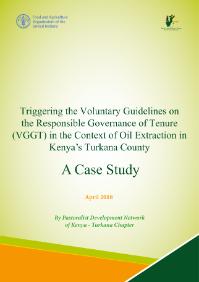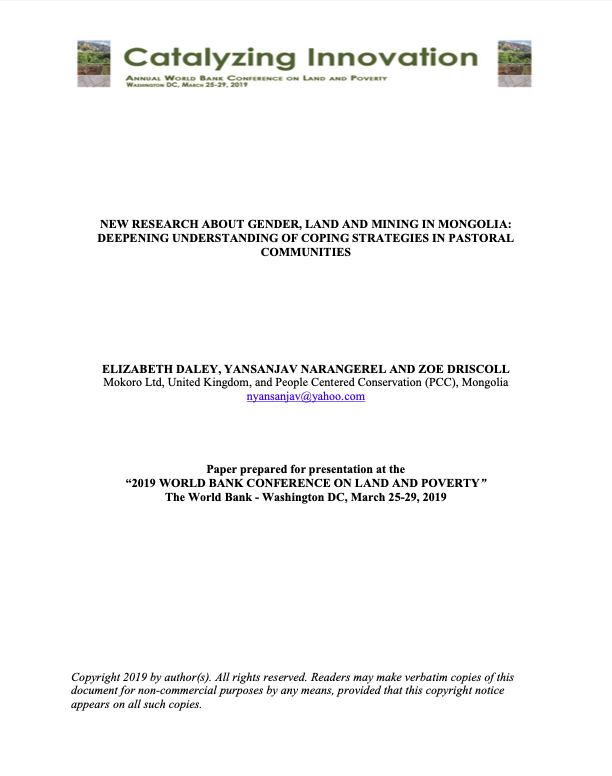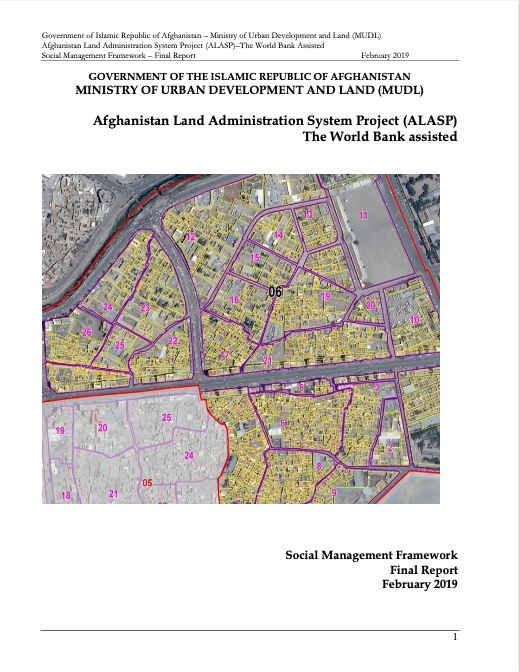Triggering the Voluntary Guidelines on the Responsible Governance of Tenure (VGGT) in the context of oil extraction in Kenya’s Turkana County
The case-study presents the case of the appropriation of pastoral lands by the coming of large-scale extractive industries in Turkana, Kenya. The case-study is meant to raise awareness among the general audience regarding the precarious situation of the pastoralists in the context of this new socio-economic development and lack of secure land tenure. At the same time, it provides this information as a case to local and global civil society, experts, institutions and policy makers.









